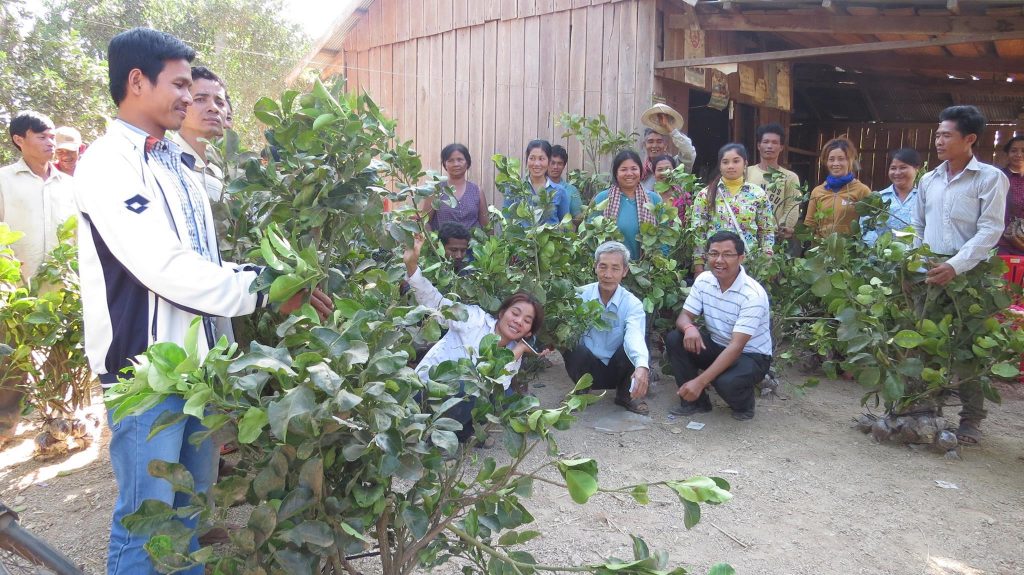
Project Location: Three (03) target primary schools (Achen, Yeav and TaNgoun), which serve 3 villages (Achen, Yeav, Ta Nguon)and 2 annex villages of Achen (Spean Kdar and Romoul) in two communes ( Kampong Cham and Vodthonak).
Project Gold: Contribute to achieve Education Strategic Plan of POE and CFS performance in Kratie,
Sambour district.
Income self-help Groups
KAFDOC will cooperate with Commune councils and village chiefs of selected two target village(Achen and Ta Nguon) have to conduct a refresher meeting to review the groups regulations and structures for a better running of the groups in order to ensure that IG will enable them to make plans with local authorities to intervene with and support poor children to go to school regularly. There will be quarterly meetings of each group coordinated by VC and CCWC in order to make sure that all problems faced by the groups will be solved on time. The members and local authorities will identify duties and responsibilities of each members and leaders with some help from the project staff. All agreed documents will be signed by group leaders and commune chiefs. After training on orientation, regulation and process of the IG, the project will grant $1,000 for each IG to establish a sustainable capital and grants to assist poor children to let them access schools. The 2 IG will be coordinated to open a bank account in order to make sure that all income or capital are safe. The bank account must be signed by relevant stakeholders such as IG leader, commune chief/CCWC and KAFDOC. Cash withdrawal won’t be possible unless there is a clear plan of borrowers or number of poor children who are in need for an intervention and those plans must have been agreed on by local authorities and approved by KAFDOC. Regarding the Pomelo group in Ta Nguon village, the project will cooperate with Commune Chief, village chief and Provincial Department of Agriculture (PDA) to conduct a control of the quality of pomelo offshoots and orient on the technics of maintaining for a better growth or support 3 model home growth families. The model farmers will contribute to share or link their skills with schools to improve life skills for student councils or learning out of classroom.
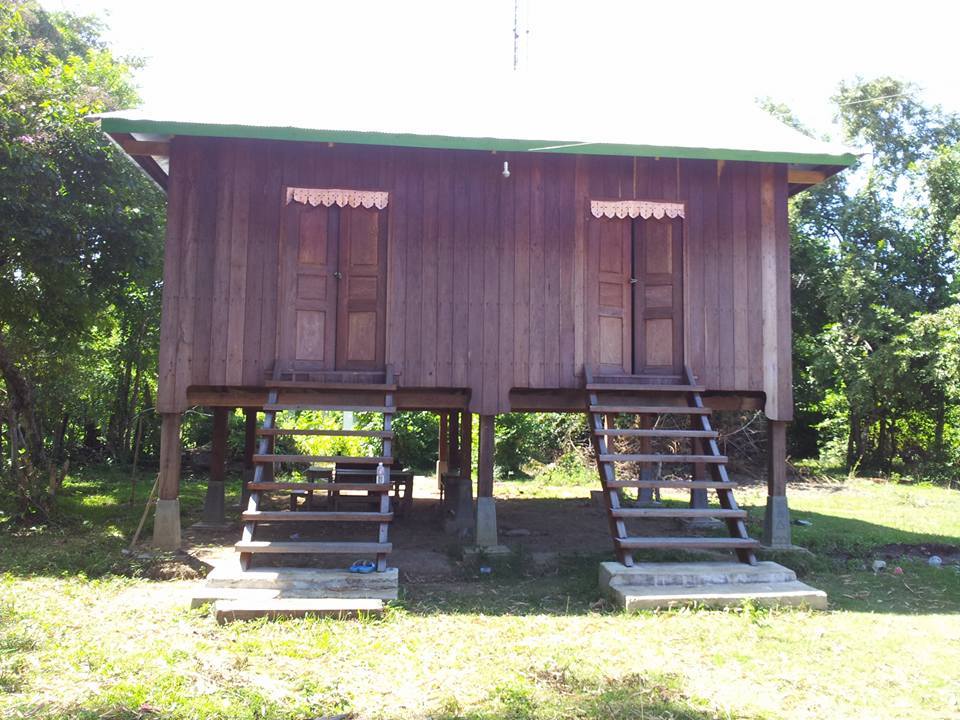
Teachers house
One teacher’s house was built for teacher s who live far away from school. They can stay on the house and help to teach these children in the rural remote areas.
The project progress:
The overall project objectives, outputs, and activities in this ended project have been undertaken and completed according to the project agreement which was based on CFS performance monitoring and the evaluation checklist provided to meet the project objective indicators. Through the implimentation of this project many improvements have been seens. DTMT and the local authority have supported schools to implement the school improvement plan(SIP). Libraries are now open more regularly thanks to the contribution of the Children’s Councils and SSC. Early grade teachers and school management have been highly committed to improving the reading benchmark by conducting tests more regularly and more often. Students’ learning outcomes have been reviewed and improved by teachers through the use of extensive materials and the improved reading toolkits. A big improvement has been made to teacher training, with all teachers having being trained and performed well on administrative management and teaching methodologies.
Community members and families have played a role in monitoring school and teacher performances through school meetings, observations, school forums, which has helped to implement SIP. SSC has contributed to making improvements in the monitoring of infrastructure developments, maintanence of school properties, creating and training students’ art group in schools, and engaged in selection for scholarships. Additionally, SIP have submitted the Commune Investment Program, and Commune Child Protection Network has been formed for each village/annex village.
Children’s councils have and are working towards raising awareness on food security/safety in school and the importance of hygiene. Children’s Council have also been involved in the school improvement plan(SIP), especially working towards helping students with special learning needs from grade1-3 after they had conducted the interval test.
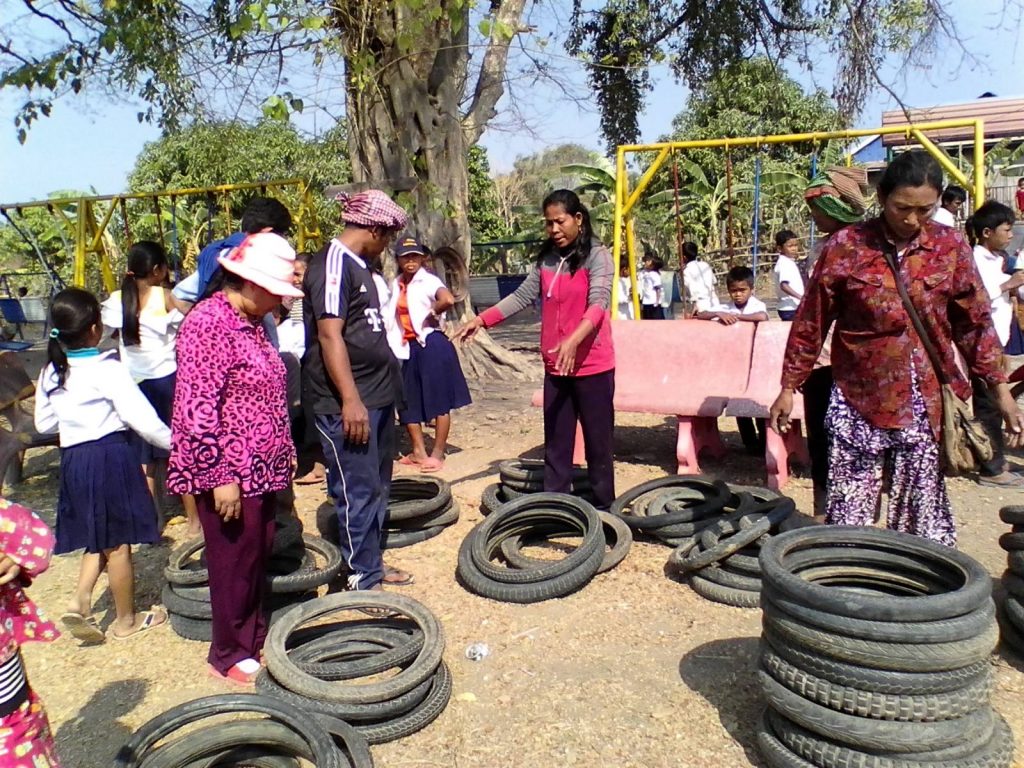
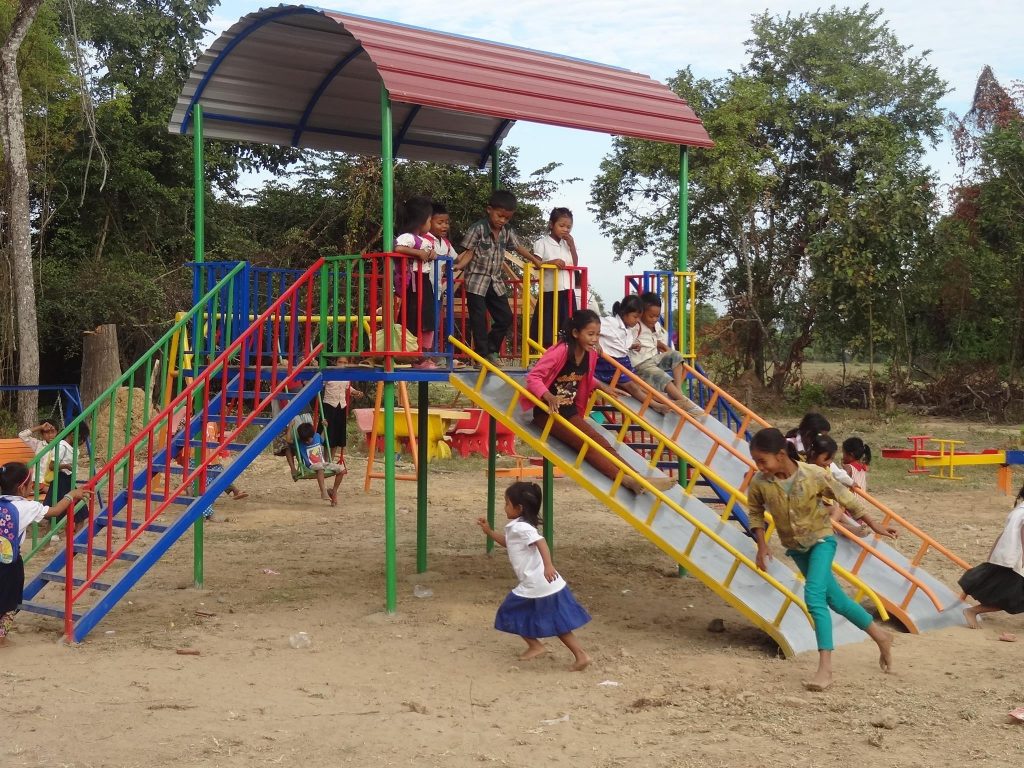
School improvement
The 3 target schools already have existing playgrounds and recycled playgrounds but some of those are in need for repair in order to be safe for children playing. Moreover, the project will also work with SSC to organize some more prioritized playing equipment and garden for serving the advantages of teaching and learning outside the classroom. The activity can’t be implemented unless the school has a clear school development plan.
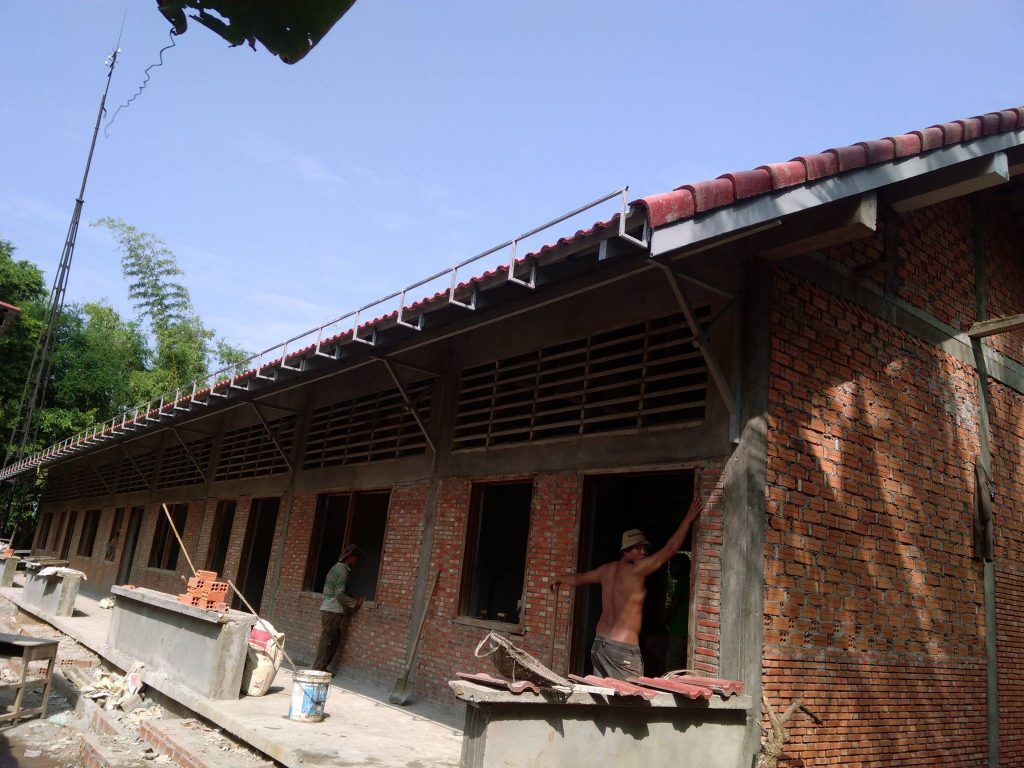
Reflect to objectives:
This project has benefitted the relevant stakeholders (SSC, Teachers, School directors, and village chiefs) of the 3 target schools. Additionally, it has contributed to Commune Councils, DoE, and district government officials. Knowledge by these organisations has been gained through various capacity building sessions on topics such as; child rights and protection, using the improved reading toolkits and math toolkits, school leadership and governance, ownership, and library management. With the supports and regular monitoring from project staffs and communities/local authorities, there has been an improvement in the implementation of SIP and school management. The implementation of SIP has also addressed the concerns raised by parents and children such as; improving the cleanliness of toilets, repair of playgrounds to improve safety, and communities have raised funds to build fences and gates. Learning of students have been improved through the use of teaching aids, reading and math toolkits. Teacher have also been encouraged to ask parents to help their children read at home and they are now able to borrow the improved reading toolkits. Children’s Councils have allocated more time to increase opening times for students to have better access to reading books inside and outside the classroom.
The project conducted exit planning with teachers, school management, parents, SSC, local authorities, and DOE.
DTMT and local authorities are going to continue to provide monitoring and evaluation checklist of schools and teacher performance twice a year.
School management will keep working to improve teaching standards, the use of teaching aids and train teachers to plan lessons appropriately, reduce early grade students with special learning needs by conducting regular interval assessment tests, including SIP into CIP, and keep following their proposal to other relevant institutions.
Children’s Council has committed to organising the bio-garden school. They also will continue to raise inputs into SIP and improve implementation. Children’s Council are also allocating groups for cleaning toilets and school grounds, and are helping to monitor library accessibility.
SSC are committed to follow up their plans to Commune office and department of rural development, increasing enrollement of children who have reached school’s age, and monitor school and teacher performance.
This project has also addressed strategies put forward by INSPIRE. The education and life skills strategy aims to increase primary school enrolement. In 2016 enrolement figures for primary schools funded by Child Fund were 77.7%, in 2018 the figure had increased to 92.67%. This increase was achieved through a number of different strategies such as improving the infrastructure of school, making the playgrounds attractive to children and improving teachers training and teaching aids.
INSPIRE Education and life skills strategy also aimed to improve children’s knowledge of sexual abuse and how to protect themselves against it. We have created Commune Child Protection network (CCPN) which has created a network which allows and makes it easier to children to report sexual abuse.
Lesson Learned:
Based on the direct project implementation and many years in the education sector, we learnt that students in grade1-3 two passed the interval assessment test regularly and have been supported by family, teachers, and friends, were always more likely to achieve better learning outcomes than those who did not pass the interval assessment test because students with low reading standard struggle across all classes, unfortunately the 3 target schools have just started to implement the reading benchmark from March 2018 but the project comes to an end in June 2018. However, school management and teachers have been trained on how to use the improved reading toolkits, Interval assessment test, and have laminated assessment tests for doing the interval assessment test after the project has exited.
Within 8 months of implementing this project, KAFDOC has worked to increase involvement of parents, SSC, and local authorities in monitoring and evaluating SIP implementation, school and teacher performance. Therefore, parents, SSC, and local authorities are more likely make a better contribution to school development and make good relationships with teachers. Hence, other projects should be encouraged to work with the community and local authorities to improve the quality of education for students.
